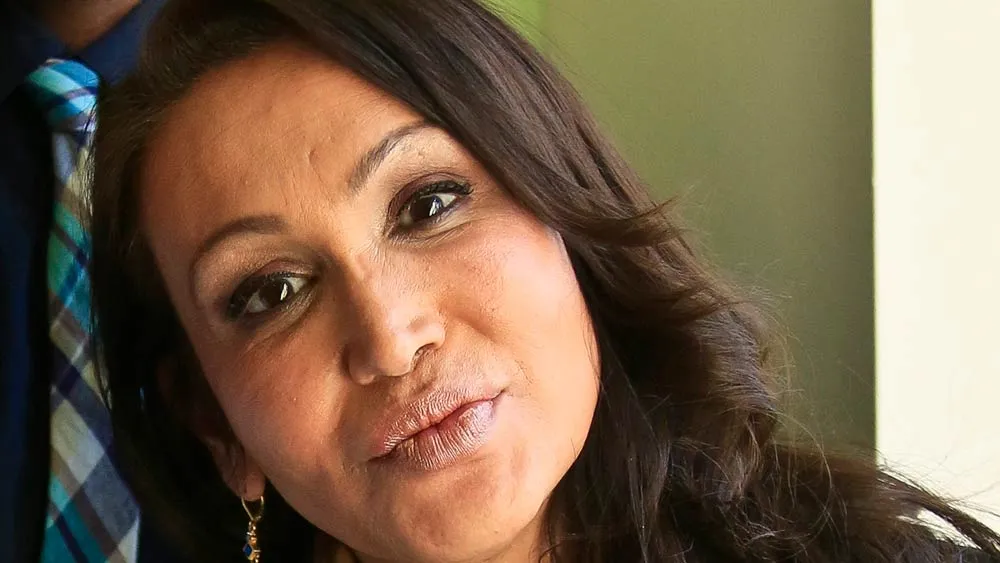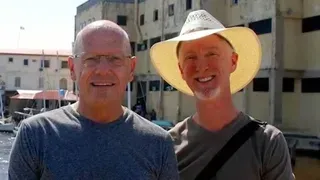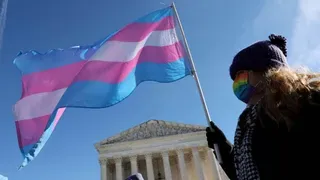June 3, 2011
Boston's AIDS Walk falls on solemn anniversary
Robert Nesti READ TIME: 5 MIN.
Three decades after birth of epidemic, annual AIDS Walk Boston prepares to walk again.
The 26th annual AIDS Walk Boston, "From All Walks of Life," Boston's annual AIDS Walk will take place this Sunday, June 5, 2011.
The date also marks the 30th anniversary of AIDS. Three decades ago to the day, on June 5, 1981, the CDC's Morbidity and Mortality Weekly Report published case descriptions of "5 young men, all active homosexuals, [who] were treated for biopsy-confirmed Pneumocystis carinii pneumonia at 3 different hospitals in Los Angeles, California." The Associated Press and Los Angeles Times also ran reports of these first cases of AIDS on June 5, 1981.
Memories of those early days motivate Ken Orth, a Peabody resident and United Church of Christ minister in Winchester and Boston, to raise money for the Walk.
"At this point in our lives, it would never occur to us that the first Sunday in June is not a Sunday we set aside to do the Walk," says Orth of his and his husband George Paolucci's participation in AIDS Walk Boston, which benefits the AIDS Action Committee of Massachusetts (AAC).
"There were many churches that just would not do a funeral, and clergy who would not participate in people's memorial services," recalls Orth. "Many of my friends were in that situation. It was a very difficult reality, but it truly motivated me to do what I could to make sure we understand that God's love includes all people."
A personal issue
One of those friends was a funeral director at Waterman Eastman Funeral Services. "He opened his funeral home and offered services when others would turn people away because they wouldn't touch the body [of someone who had died of AIDS]," says Orth, who performed his friend's memorial service at Old South Church.
Today, Orth still ministers at Old South, where he leads a Healing Worship Service the second Sunday of every month at 10 a.m. It began mostly with people who were affected and infected by HIV/AIDS. But it has since come to be a place where people come "from all walks of life" come for healing. "We work together on opening ourselves to the spiritual love of God and the healing power of God," Orth says. "And, of course, healing is not curing. But healing is being accepted and loved as a whole person, body, mind, and spirit, in whatever condition we are in."
Somerville resident John Hanawalt who, at 26, is four years younger, will also be walking on Sunday. "It feels like a personal issue even though I'm HIV negative," Hanawalt says. "I think every gay man knows what it's like to have that one test that they're unsure of, and to know that the results could change their life. So for me there's a personal stake in fighting HIV and AIDS even though I'm fortunate enough to have avoided it."
Hanawalt, who will be "rocking a Freddie Mercury moustache" for the Walk, has joined with friends to walk as Team Freddie Mercury. The name came from his and his teammates' desire to show "how far AIDS can reach." But the group of five friends also chose to name their team after a rock star "because everyone on the team's a rock star," Hanawalt says, "and we wanted the fundraising to seem fun and glamorous and high energy like Freddie Mercury."
For Hanawalt and his friends who are, he says, "part of the first generation living with AIDS as a reality," participating in the Walk isn't just about raising money for AIDS Action Committee, which provides services for one-in-six people in Massachusetts living with a diagnosis of HIV. Hanawalt says it's also about sharing news and information about HIV and AIDS "that gets people engaged" in the cause and also gets them thinking more deliberately about HIV. So he posts items to his Facebook and Twitter accounts, sends emails to his circle of friends and family, and writes about it on his blog, John Hanawalt Design, where he recently posted that he's participating in AIDS Walk Boston because he's "frustrated to see young people contracting HIV because they can't get the education or condoms that would prevent it."
AIDS continues to take lives
Despite incredible advances in treatment and understanding about how HIV is spread, 30 years into the epidemic, HIV and AIDS continues to take lives. In Massachusetts:
The number of people known to be living with HIV/AIDS increased by 42% from 1999 to 2008.
Non-Hispanic blacks and Hispanics make up only 6% of the total population, but non-Hispanic blacks account for 29% of those living with HIV/AIDS, and Hispanics account for 25% of those living with HIV/AIDS.
Among those recently diagnosed with HIV/AIDS, male-to-male sex is the leading reported cause of exposure, accounting for four out of 10 new diagnoses.
And nationally:
There is a new HIV infection every 9.5 minutes and HIV continues to infect about 56,000 people annually.
There are more than 1.1 million people living with HIV/AIDS.
Gay and bisexual men are more than 44 times more likely to become infected with HIV than the general population.
About one in 16 Black American men and one in 30 Black American women can expect to become HIV positive in their lifetime.
AIDS is the third leading cause of death for African-American men and women age 35 to 44.
About one-third of all new HIV infections occur in people age 28 and younger.
The AIDS Walk was first held in 1986 and is one of the first walks to be introduced in Boston, as well as the country. The 5K run was added to open up fundraising to runners. Historically AAC's largest fundraising event, it has raised nearly $36 million for programs and services to support those living with and at risk for contracting HIV/AIDS. Last year, more than 10,000 participants took more than 124,000,000 steps to complete the course and AIDS Action's MBTA Boston AIDS Walk awareness campaign was seen by more than 2 million MBTA commuters.
"There are an estimated 23,000 to 25,000 people living with HIV/AIDS in Massachusetts, about 21 percent of whom do not know they are HIV positive," said Rebecca Haag, president and CEO of AIDS Action, who walks each year and contributes personally to every AIDS Action employee who walks or runs. "At any given time, AIDS Action is providing services to at least one-in-six of the 18,000 people who do know their status. We connect people with health care, peer support, counseling, free HIV testing, housing and fuel assistance, and legal services. Thirty years into this epidemic, money raised from the AIDS Walk is still essential to this work, and we urge everyone in the Boston area to join us or donate to the thousands of walker and runners who do."
Robert Nesti can be reached at [email protected].







